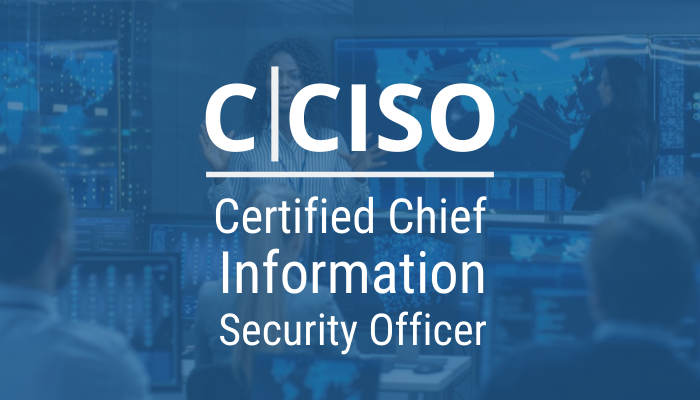Certified Chief Information Security Officer v3

About Course
The Certified Chief Information Security Officer (CCISO) course is an advanced training program designed for top-level information security executives. It goes beyond technical knowledge to focus on the application of information security management principles from an executive management point of view. The course provides learners with the necessary skills to effectively design, manage, and align a security program with organizational goals and enhance their leadership abilities.The CCISO Certification equips participants with the latest practices in governance (Module 1), management controls and auditing management (Module 2), managing projects and operations (Module 3), core information security competencies (Module 4), and strategic planning and finance (Module 5). These modules cover a comprehensive curriculum that includes establishing information security management structures, compliance management, risk management, and understanding legal issues that affect information security. By earning the CCISO Certification, professionals demonstrate that they are ready to tackle the challenges of leading a top-notch information security team, aligning security initiatives with enterprise programs, and communicating with stakeholders at the executive level.